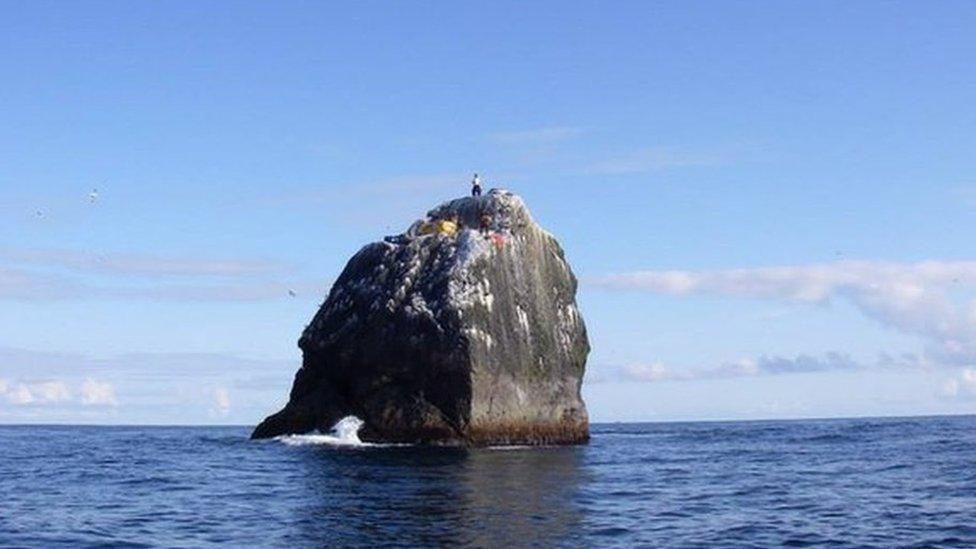Rockall: The adventurers who lived on a craggy outcrop
- Published
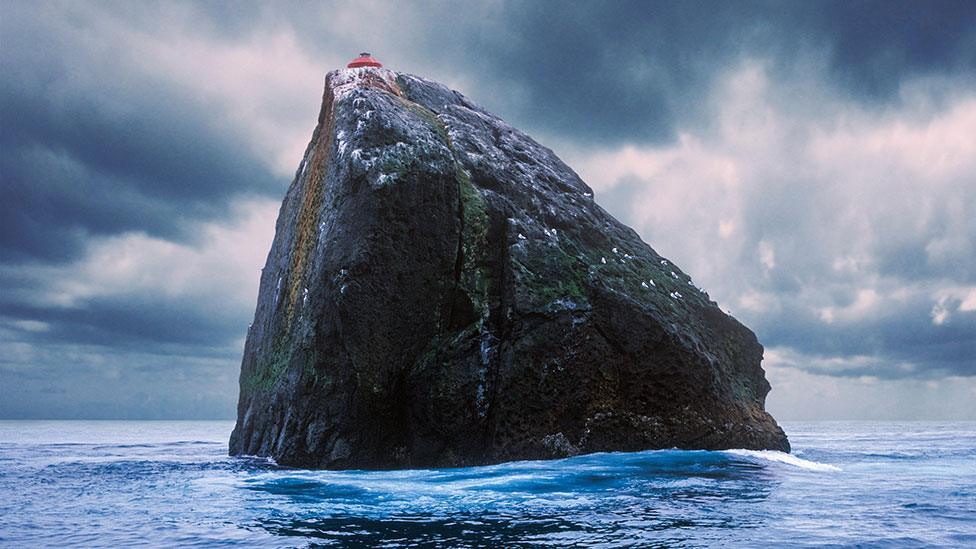
Rockall - the small craggy mound poking out of the Atlantic - is currently the focus of a fight about who can legally fish around its ferocious seas.
It is an 11-hour boat ride from the Outer Hebrides and birds, not people, are its resident population.
Nevertheless, being in the middle of nowhere has not stopped adventurers keen to test their survival skills in an extreme environment.
A few have successfully resided on the remote rock where algae, moss, and seaweeds lie over its surface.
With the disputed waters around Rockall making headlines, BBC Scotland looks back at the survivalists who know the island best.

'I was the first person to reside on Rockall'
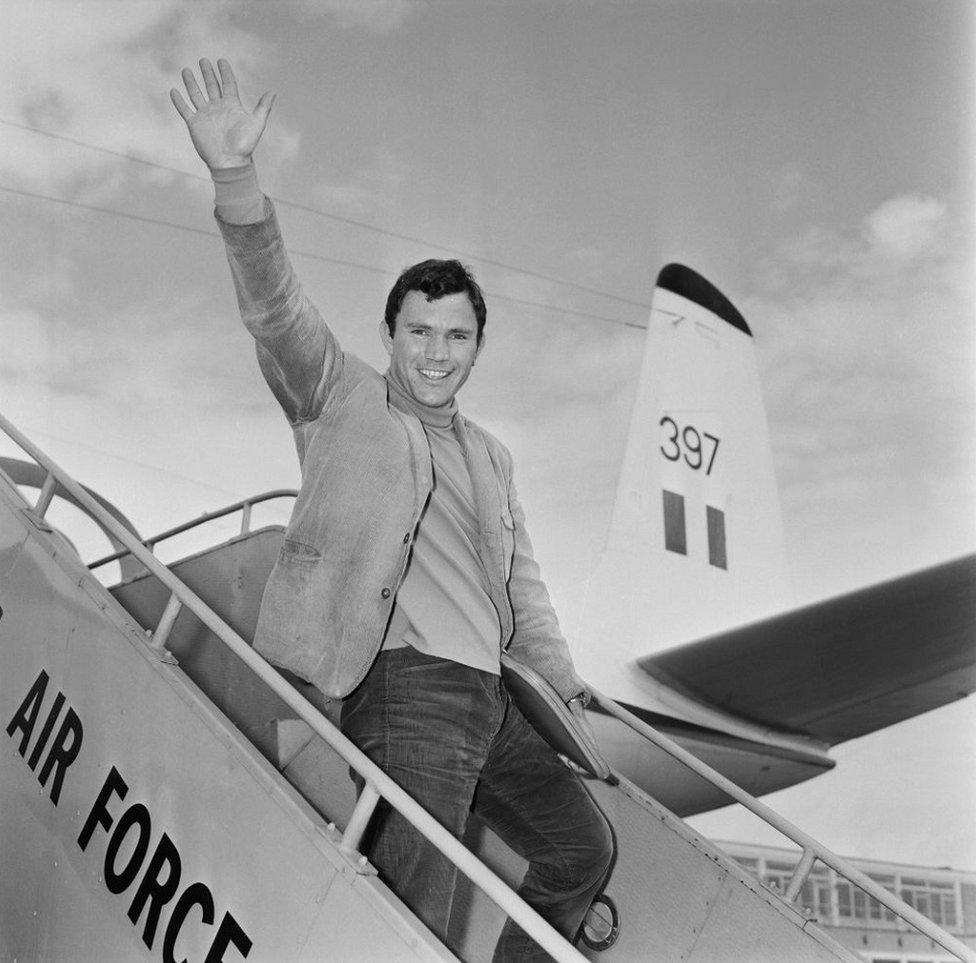
Tom McClean was already a well-known adventurer when he embarked on the Rockall expedition

Tom McClean lays claim to being the first man to reside on Rockall, after spending 40 days and nights on the rock in 1985.
The former SAS soldier was already a well-known adventurer, having become the first man to row solo across the Atlantic 16 years earlier.
His Rockall adventure came 30 years after UK troops annexed the rock, though Iceland, Ireland and Denmark have laid claim to it since then.
Mr McClean told BBC Radio 4's World at One that in the mid-80s he was keen to reaffirm British rights to the islet and prove that it was possible to sustain life there.
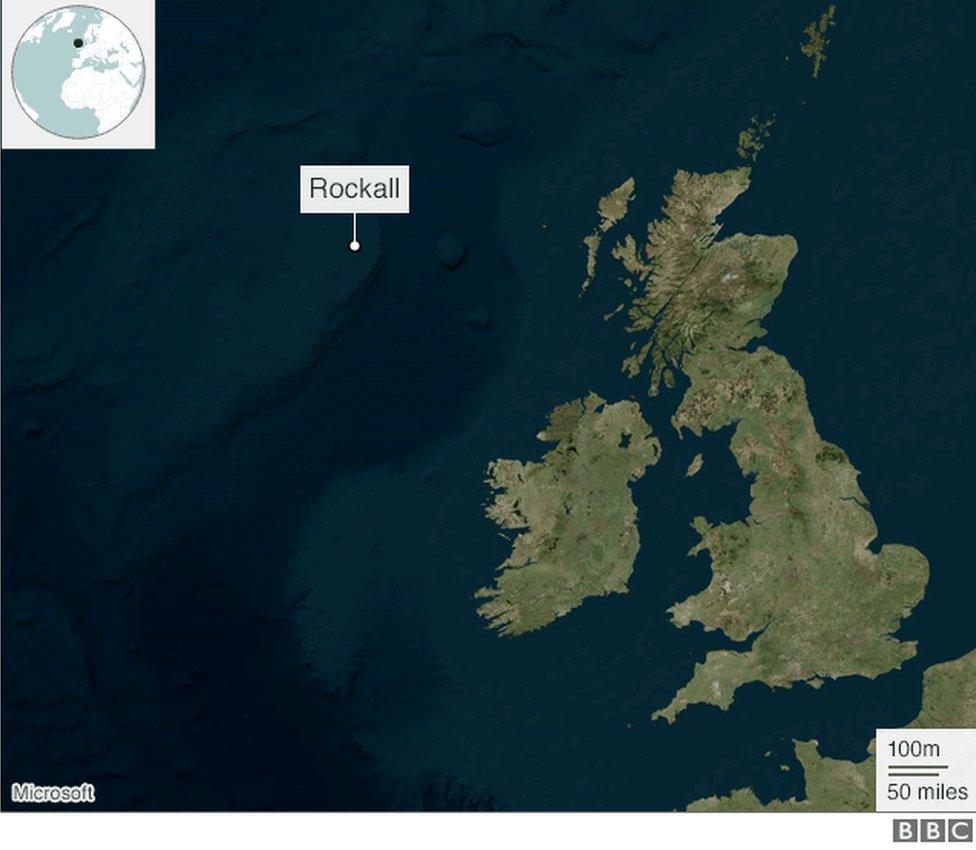
He arrived at the rock on a boat from Mallaig, on the west coast of Scotland's mainland.
"It's a very daunting-looking rock sticking out of the sea," he added. "It's about 80ft (24m) high and 100ft (30m) at its base, very craggy."
After climbing to the summit and raising the Union flag, he lived in a survival unit he described as a "wooden box" measuring 5ft (1.5m) by 4ft (1.2m) by 3ft (1m).
By day he would write his log, and use his radio to communicate with nearby fishermen and his family.
But conditions were harsh. "You get a lot of wind, a lot spray," he said. "In the winter the sea goes right over the top - you'd get wiped off the thing.
"But I was bolted down. I had the radios, I was talking to the fishermen. It was wild and wet."
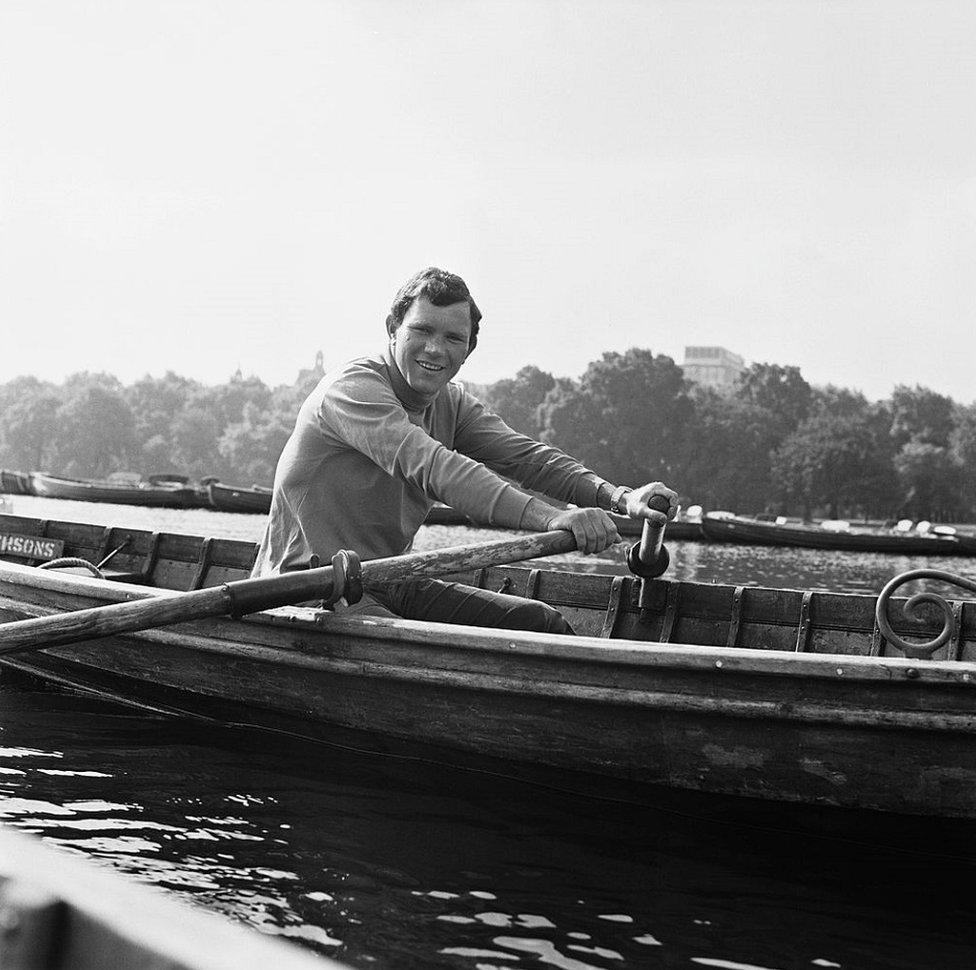
Tom McClean was the first person to row solo across the Atlantic in 1969

He added: "By international law of the sea if you stay on an island more than 21 days, you're residing. I'm the first person to reside on Rockall."
He said that when Britain annexed Rockall in 1955 "no other country was interested".
"It went on for about 10, 20 years and then oil started popping up and everybody was interested in Rockall. "
Asked how the fishermen embroiled in the latest dispute should be treated, he answered: "With respect but if you're in someone else's waters, you're going to be towed out."

The climate campaigners helicoptered onto the rock
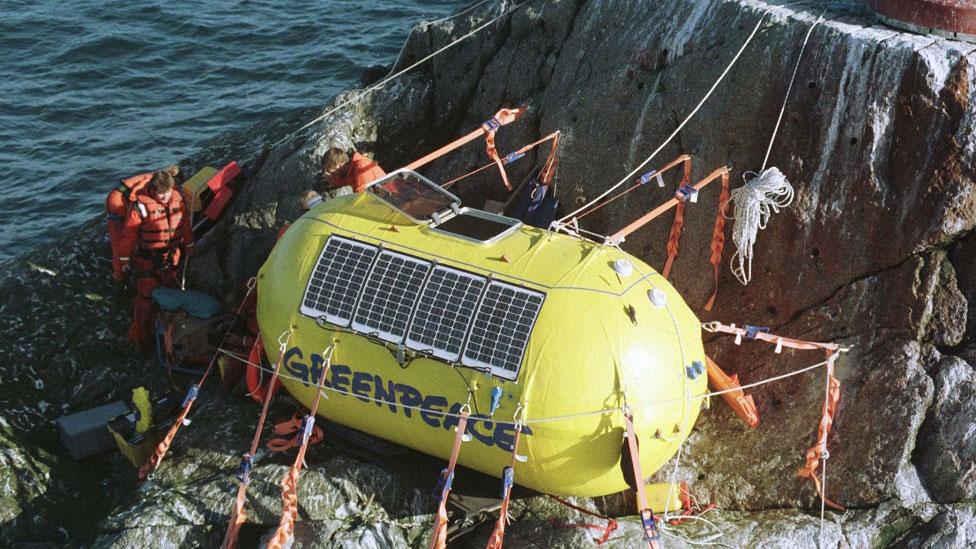
Three Greenpeace activists occupied Rockall for 42 days
On 10 June 1997 three Greenpeace activists landed on the island by helicopter to protest about potential oil exploration in the region.
They spent 42 days on the rock, living in a solar-powered capsule.
Speaking at the time, one of the activists is quoted as saying: "The seas around Rockall, potentially rich in oil, are fought over by four nations - Britain, Denmark, Iceland and Ireland.
"By seizing Rockall, Greenpeace claims these seas for the planet and all its peoples."
They raised a new flag on the rock - the flag of the "Global State of Waveland" - establishing Rockall as the capital of an entirely new country.
But they did not want to own Rockall - Greenpeace said it wanted to borrow it until it was "freed from the threat of development."
It was a "virtual nation" in the early days of the internet with citizenship offered to anyone prepared to take a pledge to defend nature and act peacefully.
Over the next few months, more than 15,000 applied for citizenship.

'I was looking for an adventure'
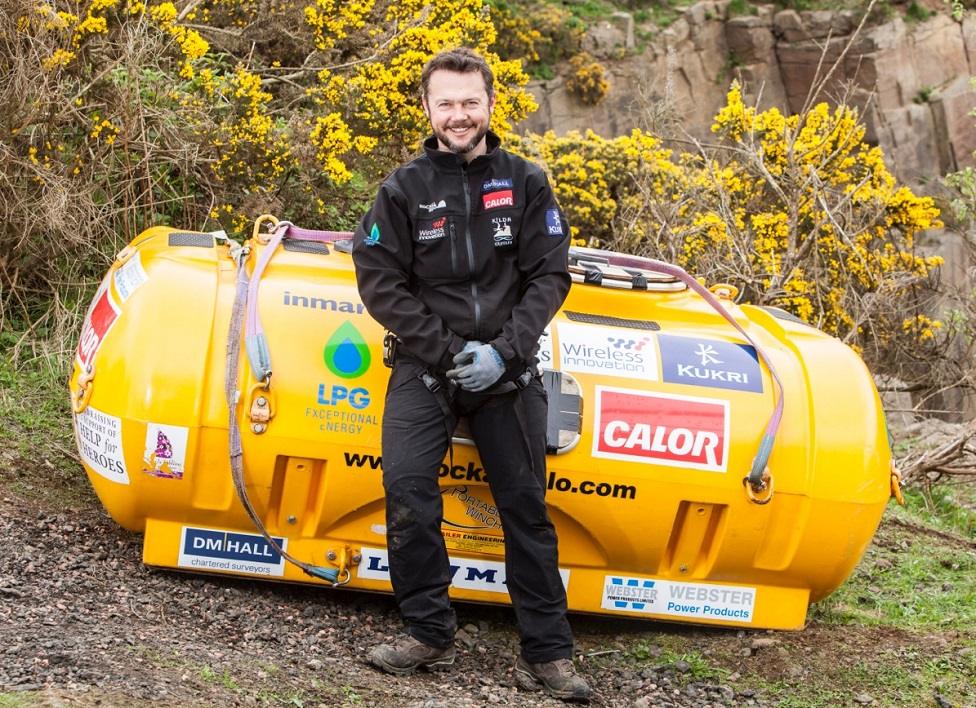
Nick Hancock is planning to return to Rockall as a tour guide
The current world record holder is Nick Hancock - a surveyor from Edinburgh - who spent 45 days on the desolate outpost in the summer of 2014.
He is now making plans to return to the remote rock, as a guide for a group of adventure tourists.
Last month he told BBC Radio Scotland's John Beattie programme why he first went to Rockall.
Having climbed Kilimanjaro in Tanzania and Elbrus in Russia, and completing the Marathon des Sables, he was "looking for an adventure".
"I'd climbed a few mountains, run some ultra-marathons and kept running into people who'd done those sort of things as well, and really I just wanted to have an adventure on my own," he said.
Nick Hancock's world record bid will see him spend 60 days alone on Rockall
He spent more than six weeks living in a pod which he secured to the rock. He took all his food and water with him.
"There is literally just a rock there, there's a couple of algaes, a few birds, a few seals and that's about it," Mr Hancock said.
"I was tethered down in my shelter with ratchet straps, fixed to cemented metal fixings. It was pretty hairy out there."
His next trip to Rockall will see him leading a group of intrepid tourists in 2020 using St Kilda as a staging post.
"It takes a minimum of 16 hours, and perhaps in excess of 24 depending on wind direction, to travel from Oban to Rockall and the ocean swells can make landing very tricky," he said.
"Also, there is not a great deal of room on the rock, just a small platform where my survival pod was and a flat area at the top.
"We may have to take the tourists on in groups. The rock is very slippery with bird waste and landing such a large number of people will be quite an operation."
- Published9 June 2019
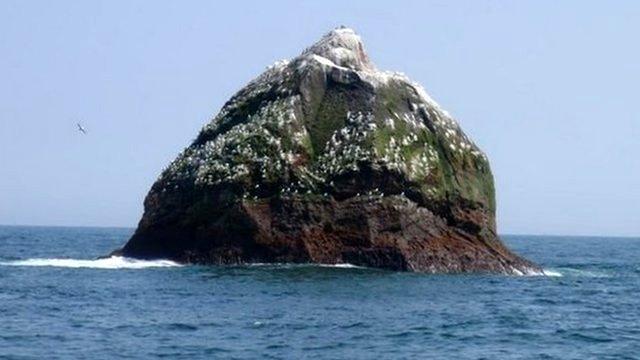
- Published8 June 2019

- Published7 June 2019
